Johannesburg, South Africa — Artists, musicians, designers and entrepreneurs helped to host the sixth annual Basha Uhuru Freedom Festival in downtown Johannesburg, ending a month-long commemoration of the June 16, 1976, student uprisings.
Youth Month in South Africa honors the thousands of students across South Africa who took to the streets in 1976 to protest the apartheid government’s intention to make the Afrikaans language a medium of instruction for black students. Many students were killed by police, and many more were injured.
The festival, held at the end of June, featured vendors selling clothing and accessories, food trucks and art exhibits, all spread over the grounds of Constitution Hill, the site of a former prison where anti-apartheid activists were held and tortured, including Mahatma Ghandi, Nelson Mandela and Winnie Madikizela-Mandela.
The aim of the festival is to unite South African youth through innovative expression and artistic creativity, according to both organizers and participants.
“She is ‘colored,’ and I am black, but there is no difference,” said Akhona Ntsume, pointing to her friend Gloria Godwin, a designer at the festival whom Ntsume was helping out. Godwin designs shirts with customizable astrology signs and handcrafts berets with colorful beads.
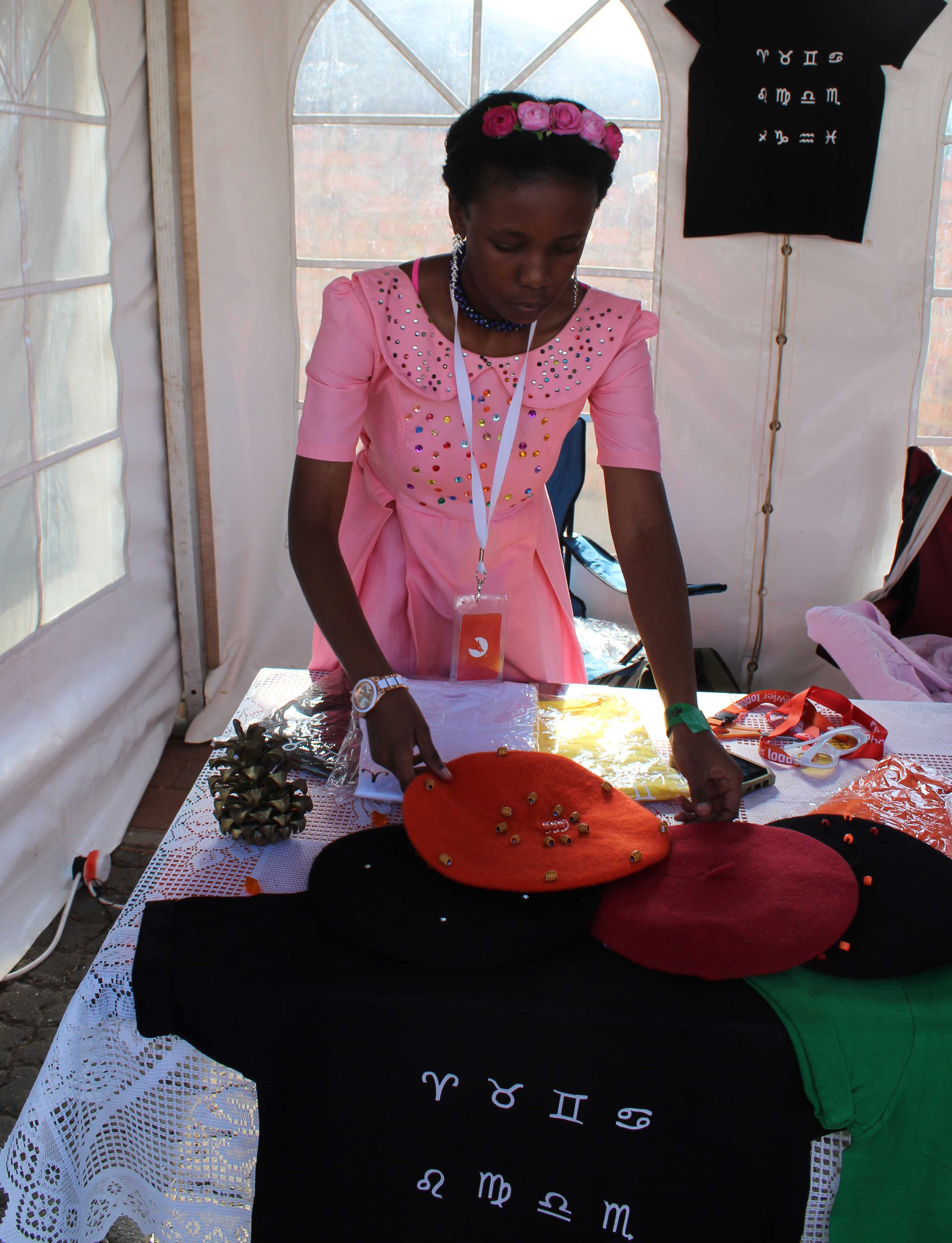
Pretty Ndlovu, owner of The Jozi Smokehouse, participated in the festival for the first time.
“I am waiting for more people to come and say, ‘wow, your food!’” she said.
The Jozi Smokehouse prides itself on imitating flavors of the southern United States and is known for its 24-hour-smoked pulled pork bun, Ndlovu explained. She said she learned how to make the dish by working with an American who sold the business to her when he returned to the U.S.
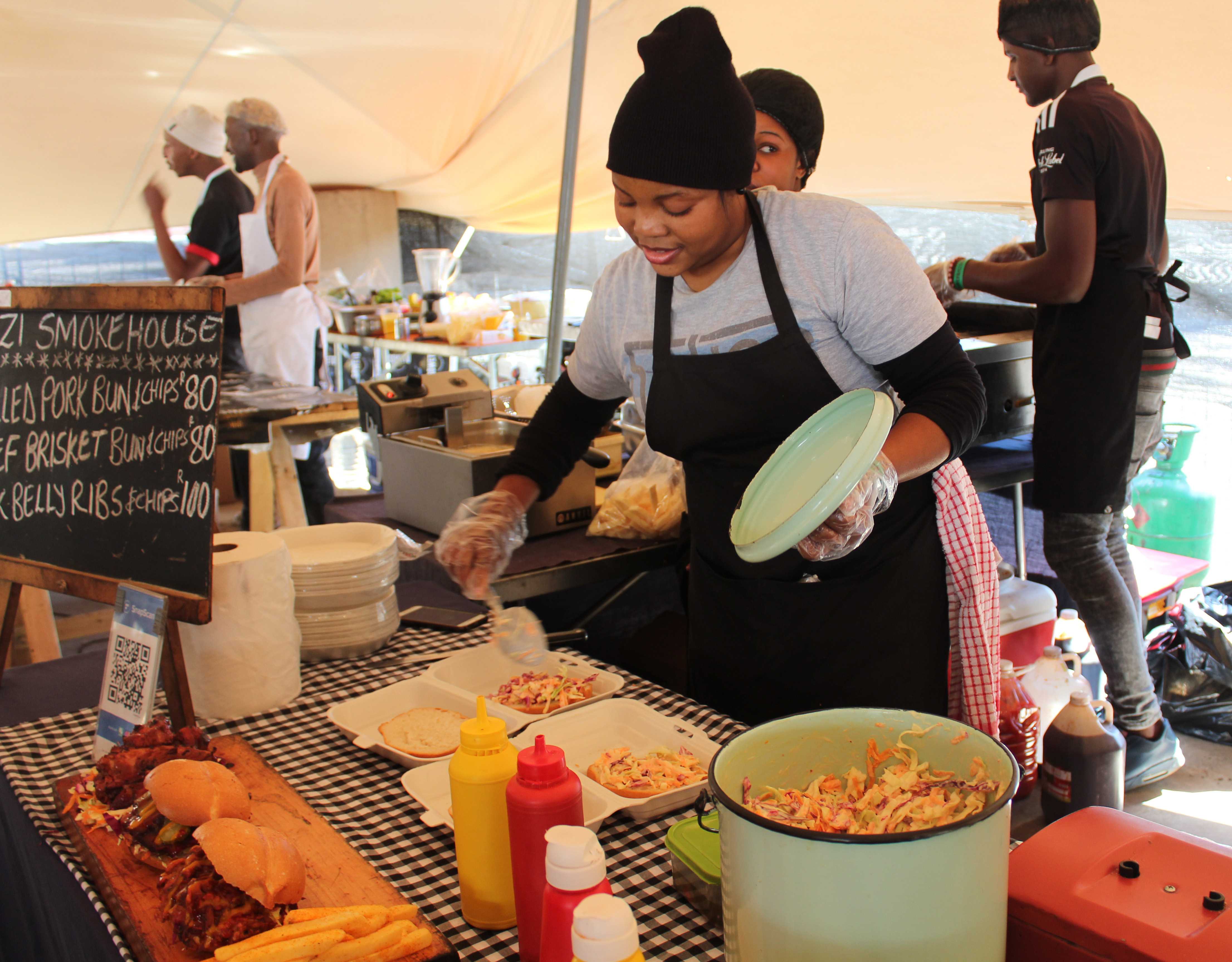
“He showed me how to flip the meats, how to do all the ingredients,” she said.
Bandile and Andile Langa also were at the festival for the first time this year, featuring their upcycled denim clothing brand Lime EFFects, which they started in high school.
“This is upside denim,” Bandile Langa explained. “We take old denim and turn it into new denim.”
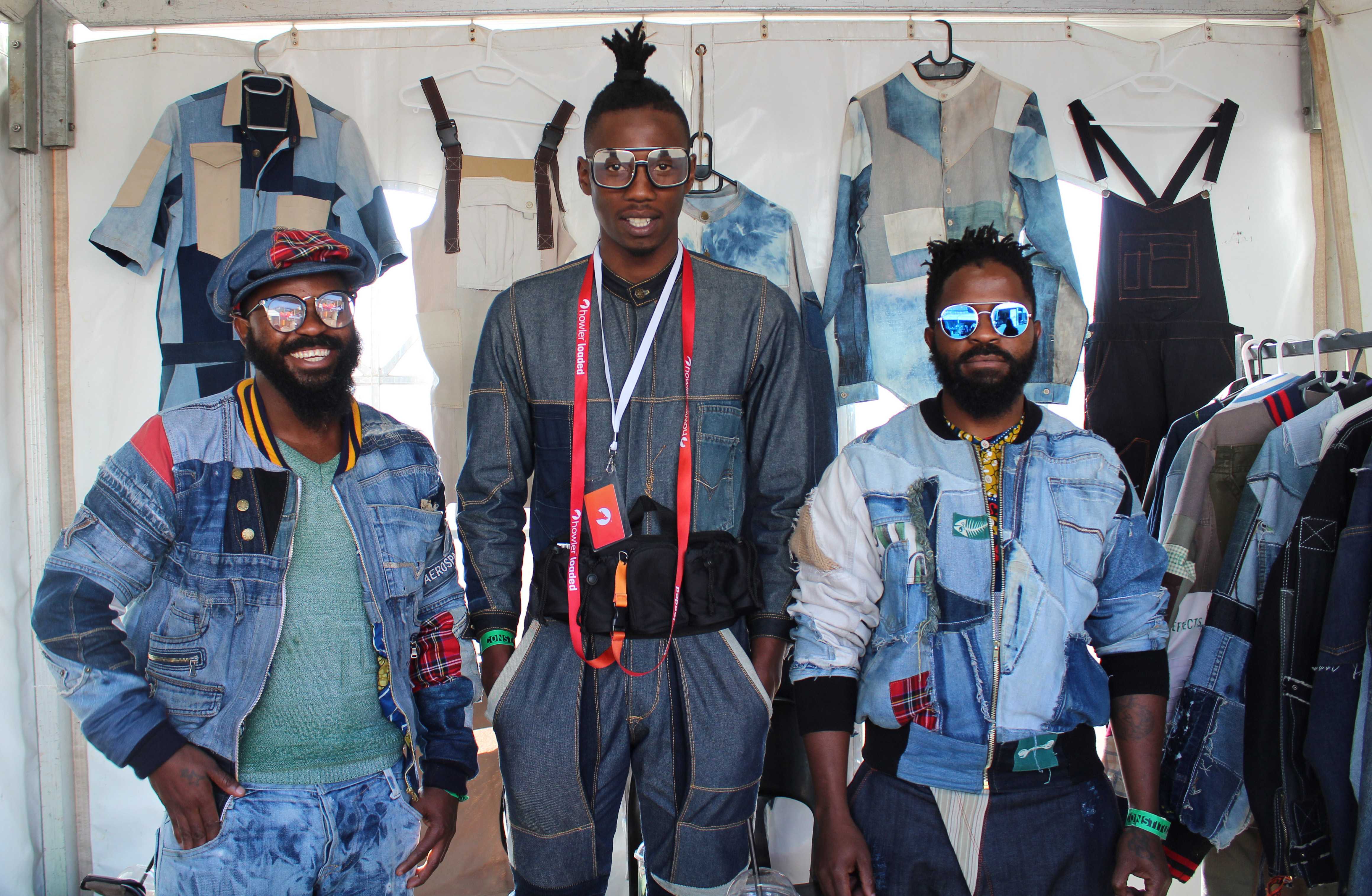
Luthando Tshabalala, a stylist for the Lime EFFects brand, said the siblings’ denim line is unique to other brands because its patchwork garments are made only from old denim. Various shades of jean and other fabrics are used to make jackets, pants, shirts and other items.
The denim is donated, and it takes roughly 24 hours to create, said Andile Langa.
Thato Edna Maunatlala is one of 45 young men and women between the ages of 15-23 who were part of South African photographer Jodi Bieber’s project – #i. The #i poster campaign, which started in 2016, was being shown for the first time inside the Women’s Jail at Constitution Hill in conjunction with the Basha Uhuru Freedom Festival.
Inside the exhibition space, over 350,000 prints lay on top of 45 small cuts of wood, one piece of wood and 800 prints for each of the people Bieber spent the last two years interviewing and photographing. The collage prints featured a signature “statement” photograph taken by Bieber as well as selfies that Bieber and the men and women chose from their phones. Visitors to the exhibition were invited to take a print with them to display elsewhere in South Africa, or the world.
Viewed together, the prints offer a wide look at South Africa’s youth.
“It represents South Africa as a whole, like the social [and] economic issues that we are going through in South Africa,” said Maunatlala. “And, as a young person in South Africa, our lives change in whatever is happening in South Africa.”
In her print featured in the exhibit, Maunatlala stands tall, wearing silver strappy heels and a black flounce frilled dress cut just below the knee.
“I thought wearing this would represent me, being a young girl in a dress,” said Maunatlala. “I should be comfortable in what I am wearing. The colors and the details [say] you should be bright, you should be brave, you should be love, you should be caring.”
Originally from Limpopo, South Africa’s northernmost province, Maunatlala said she struggled growing up in a single parent home.
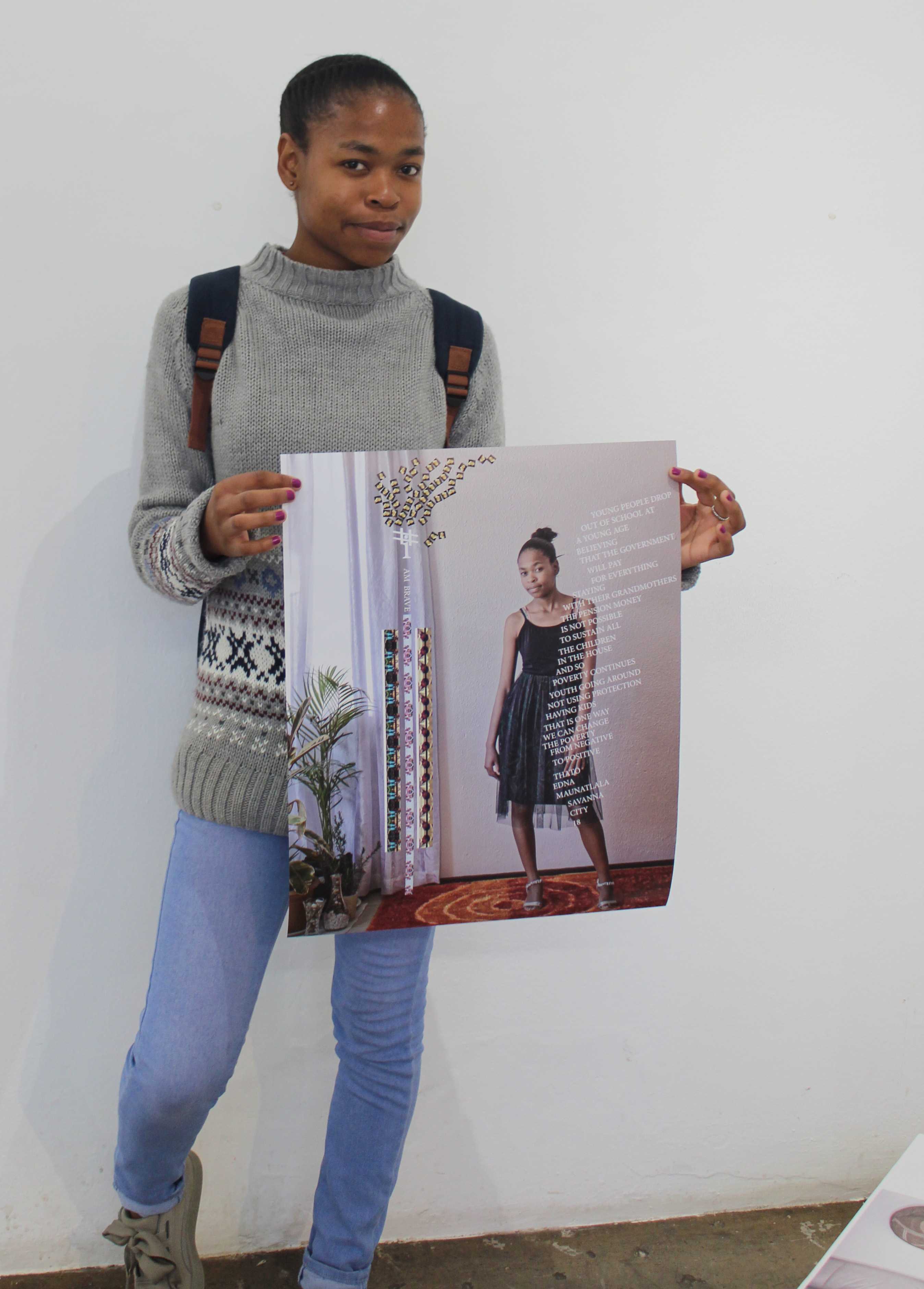
“It makes things so hard,”said Maunatlala. “Sometimes when you need something it is not always so easy for you to say it. It is just me and my mom. She is the only happiness I can find.”
After hearing about the #i campaign while taking part in a drama program at the Hillbrow Theatre, Maunatlala decided to participate in the project.
“You should embrace yourself and praise your culture,” said Maunatlala, on advice she would offer to today’s youth.” “You should learn to change the world.”
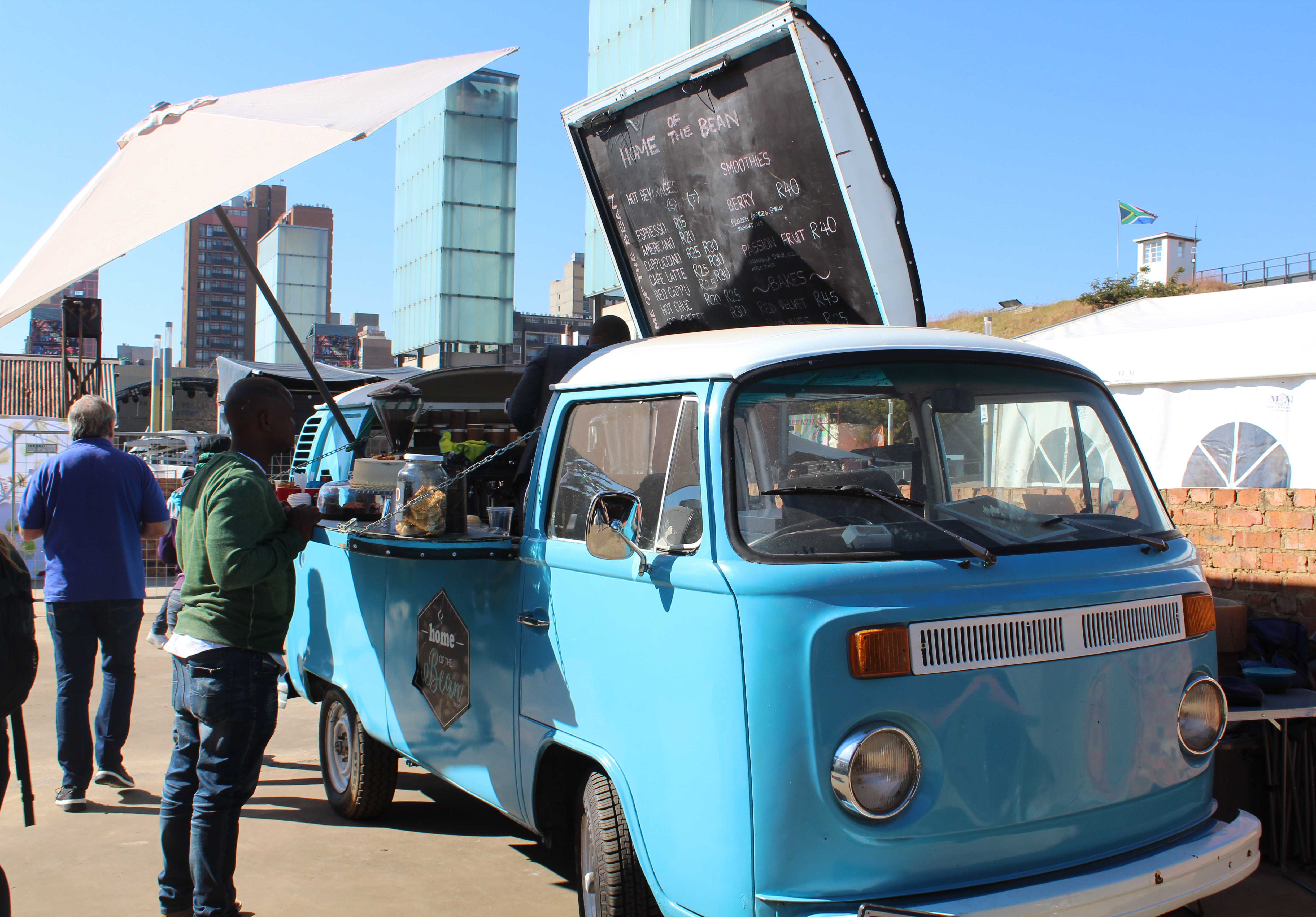
Home of the Bean, a coffee company on wheels, parks outside the entrance of the Basha Uhuru Freedom Festival. Photo by Erin Breen ’19















































